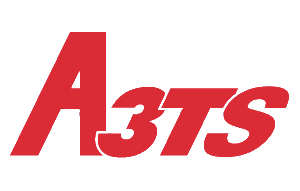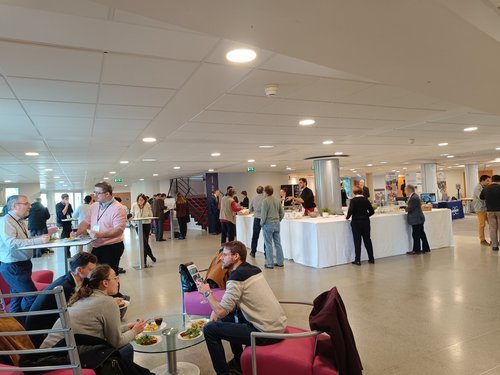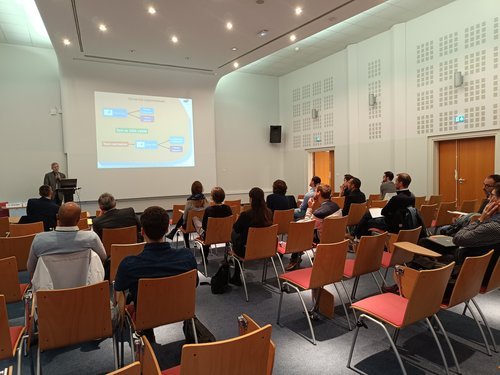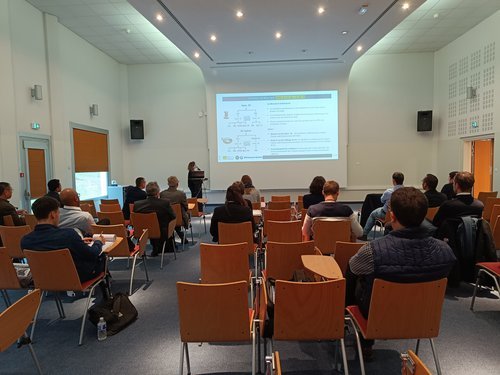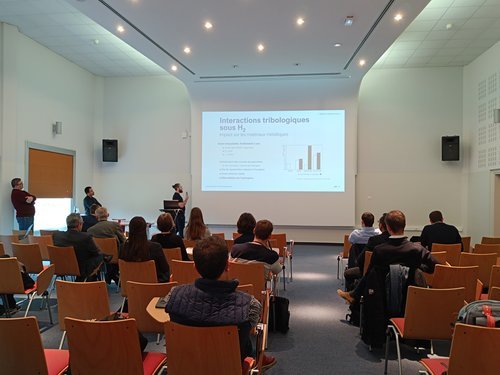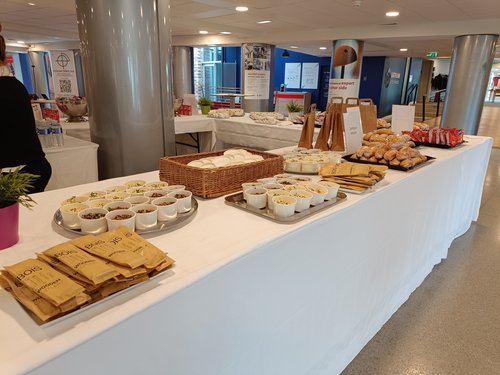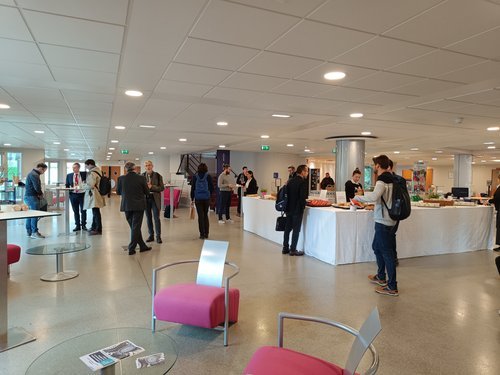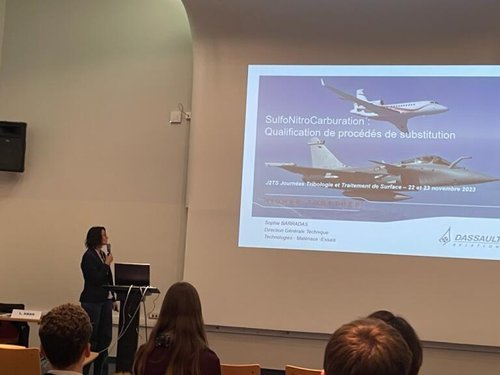♦ 50 PARTICIPANTS ♦ 15 CONFERENCES ♦ 7 TRADE STANDS
♦ 2 LABORATORY VISITS
On November 22 and 23, CETIM Senlis hosted the 3rd edition of the Journées Tribologies et Traitement de Surface (J2TS) organized by the tribology commission. Focusing on the importance of tribology in the face of climate, energy and health challenges, the event brought together 50 players from the aerospace, automotive and naval industries, as well as surface treatment suppliers and researchers and doctoral students from university laboratories.
An exhibition brought together the main suppliers of tribological testing and analysis equipment, who were on hand to demonstrate their products.
After two guest lectures, one on the future of tribology in the face of decarbonized energy developments, and the other on tribological circuits in braking problems, there were contributions on tribological studies by surface treatment applicators and users.
Among the 14 papers presented, our hosts from CETIM made several contributions demonstrating their involvement in the various themes addressed during the event. These included PTT (Lubricated Contacts), professional studies (Tribological benefits of sprayed deposits as a substitute for hard chromium plating, Thermochemical treatment to combat fretting) and the major Hymeet project (Challenges of tribology under hydrogen).
Thanks to the various visit slots offered over the 2 days, participants were able to discover the wealth of technical resources available in the Fatigue of Mechanical Components (FOD), Power Transmission (TDP) and Metallic Materials and Surfaces (MMS) clusters, as well as the Quatrium gas pedal platform.
See you in 2026 for the fourth edition!
Tribology and surface treatment to reduce carbon footprint
Friction and its corollary wear are the subject of tribology. Friction is certainly a necessity for transmitting motion (otherwise no clutch) or controlling it (otherwise no brake). But it is also synonymous with energy dissipation. And when energy resources have to be conserved, it's essential to have the tools to reduce energy dissipation.
According to a 2012 study by Kenneth Holmberg (Tribology International, vol 47), in a vehicle, a third of fuel energy is used to overcome friction in the engine, transmission, tires and brakes. Direct friction losses, excluding braking friction, account for 28% of fuel energy. In all, 21.5% of fuel energy is used to move the car.
To reduce this carbon footprint, numerous solutions are being studied or applied to reduce friction, lower lubricant viscosity and optimize lubrication regime. In both cases, the interaction between the surface and the lubricant often plays a decisive role in optimizing the lubrication regime. Since mechanical and economic constraints make it difficult to change the material of rubbing parts, the application of tribological surface treatments is becoming a priority for friction reduction.
Today, the context of global warming is pushing us to go even further, by looking for energy sources other than fossil fuels that emit CO2. Whatever alternative path is explored, there are challenges to be met. Electrification brings different operating conditions, with higher rotation speeds and acceleration ramps. Battery cells present coupled problems of mechanical strength, electrical conduction and corrosion resistance. Hydrogen raises questions about permeability, with parts that will also be working in a different environment. On another scale, developments in the nuclear industry are leading us to explore contacts in the very specific environment of cooling circuits. In each case, functional properties have to be combined with the need for low friction and resistance to mechanical or corrosive wear. Such versatility is often far from achievable with a single material, so the addition of a surface coating will prove necessary.
This event is the culmination of the work of the A3TS Tribology Commission, with 14 industrial and research center conferences, laboratory visits and exchanges with experts in the field of Tribology.
Register now and join us at Cetim for the J2TS!
Registration
Access to the conferences, breaks, 2 lunches and the visit of the laboratory or industrial site.
Rates
A3TS member : 290 € HT*
Non member : 345 € HT
2 days speaker : 190 € HT
Reservation of a stand (composed of a table, 2 chairs and an electrical connection) : 450 € HT
*the annual membership fee - A3TS member is 79,20 € HT
Reception
Welcome and registration will take place on Wednesday November 22 at the A3TS reception desk from 11:30 am.
CETIM - SENLIS
52 Av. Félix Louat
60300 SENLIS
Regulation
An email will be sent upon receipt of the registration.
A3TS reserves the right to refuse refunds of participation fees for cancellation requests received after November 10, 2023.
Hosting
List of hotels : www.chantilly-senlis-tourisme.com/carnet-dadresses/les-hebergements/
